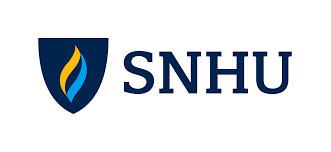Are you eager to expand your knowledge and skills but find it challenging to fit traditional classroom learning into your busy schedule? Online learning offers a flexible and accessible solution, allowing you to explore your interests at your own pace.

Western Governors University
Anúncios
With the rise of digital education, numerous institutions now offer high-quality college courses online, making it easier than ever to pursue your academic and professional goals without the constraints of a traditional campus.
Whether you’re looking to enhance your career prospects, switch fields, or simply explore a new hobby, free college courses online can provide the knowledge and skills you need to succeed.
Key Takeaways
- Discover the flexibility of online learning and how it can fit into your busy schedule.
- Explore the variety of free college courses available online.
- Learn how online education can enhance your career prospects and personal growth.
- Understand the benefits of pursuing online courses at your own pace.
- Find out how to get started with online learning and make the most of the available resources.

Southern New Hampshire University
The Evolution of Digital Learning
The landscape of education has undergone a significant transformation with the advent of digital learning. This shift has been driven by technological advancements and the increasing demand for accessible education. As a result, the way we learn and acquire knowledge has changed dramatically.
How Technology Has Transformed Education Access
Anúncios
Technology has played a pivotal role in expanding access to education. MOOCs (Massive Open Online Courses) have been instrumental in this regard, offering courses from top universities worldwide. This has enabled learners to access high-quality educational content from anywhere in the world.
| Platform | Description | Notable Features |
|---|---|---|
| Coursera | Partnerships with top universities | Variety of courses, Specializations |
| edX | Non-profit online learning platform | Verified certificates, MicroMasters |
| Khan Academy | Free online learning resources | Personalized learning dashboard, Free |
The Democratization of Knowledge
The democratization of knowledge has been a significant outcome of digital learning. With free online education, individuals from diverse backgrounds can now access knowledge that was previously out of reach. This has leveled the playing field, enabling people to acquire new skills and knowledge without the constraints of traditional educational institutions.
Benefits of Free College Courses Online
With the advent of digital learning, students can now benefit from free college courses online that cater to their diverse needs and interests. This shift towards online education has opened up new opportunities for learners worldwide.
The flexibility offered by online courses is one of their most significant advantages. Unlike traditional classroom settings, online courses allow students to learn at their own pace and according to their schedules.
Flexibility and Self-Paced Learning
One of the primary benefits of online learning is its flexibility. Students can access course materials and lectures at any time, allowing them to balance their studies with other responsibilities.
For instance, a working professional can watch lectures during their commute or after work, while a stay-at-home parent can study during their child’s naptime. This flexibility is particularly beneficial for those who cannot attend traditional on-campus programs due to other commitments.
Cost Savings and Financial Accessibility
Another significant advantage of free online college courses is the cost savings. By eliminating tuition fees, online courses make higher education more accessible to a broader audience.
According to a report, the cost savings from online courses can be substantial, with some students saving up to 50% on tuition fees compared to traditional on-campus programs. The following table illustrates the potential cost savings:
| Course Type | Tuition Fees | Other Expenses | Total Cost |
|---|---|---|---|
| Traditional On-Campus | $5,000 | $2,000 | $7,000 |
| Online Course | $0 | $500 | $500 |
Exploring New Interests Without Commitment
Free online college courses also provide an opportunity for learners to explore new interests without a significant financial commitment. This is particularly beneficial for those who are unsure about their career paths or wish to acquire new skills.
“The beauty of online learning is that it allows you to try out different subjects and interests without breaking the bank or committing to a full degree program.” –
By taking advantage of these courses, learners can gain a deeper understanding of various subjects, enhance their career prospects, and make informed decisions about their future academic pursuits.
In conclusion, the benefits of free college courses online are numerous, ranging from flexibility and cost savings to the ability to explore new interests without commitment. As online education continues to evolve, it is likely that more learners will take advantage of these opportunities to enhance their knowledge and skills.
Top Platforms Offering Free Online College Courses
The internet has democratized access to higher education through various platforms offering free online college courses. This shift has enabled learners worldwide to access high-quality educational content without the constraints of geographical location or financial status.
Several prominent platforms have emerged, catering to diverse learning needs and preferences. These platforms can be broadly categorized into university-affiliated platforms, independent learning resources, direct university offerings, and international options.
University-Affiliated Platforms: Coursera and edX
Coursera and edX are two of the most recognized university-affiliated platforms offering free online college courses. Coursera partners with top universities worldwide to offer courses on a wide range of subjects. It provides both free and paid options, with the free version offering substantial learning material. edX, on the other hand, is a non-profit platform founded by Harvard and MIT, offering a vast array of courses, including MicroMasters programs and verified certificates for a fee.
Both platforms offer flexibility and high-quality content, making them popular among learners. They also provide opportunities for learners to earn certificates upon completion of courses, which can be beneficial for professional development.
Independent Learning Resources: Khan Academy and Academic Earth
Khan Academy is a notable independent learning resource that offers free online courses, primarily focusing on K-12 education but also providing resources for college-level learning. Academic Earth is another platform that aggregates online courses and educational content from top universities, offering a broad spectrum of subjects.
These independent resources are invaluable for learners seeking supplementary learning materials or those who prefer learning at their own pace.
Direct University Offerings: Open Yale, MIT OpenCourseWare, and Stanford Online
Many prestigious universities now offer free online courses directly through their platforms. Open Yale and MIT OpenCourseWare are exemplary models, providing access to course materials, lectures, and assignments from actual university courses. Stanford Online also offers a range of free courses, leveraging the university’s expertise in various fields.
These direct university offerings are particularly appealing to learners who value the authenticity and quality of the content, as they are created by the universities themselves.
International Options: FutureLearn and Udacity
FutureLearn is a UK-based platform that partners with top universities to offer a diverse range of courses. Udacity, while known for its nanodegree programs, also offers a selection of free courses, particularly in tech-related fields.
These international platforms provide learners with a global perspective and access to courses that might not be available otherwise.
In conclusion, the variety of platforms offering free online college courses caters to different learning styles, interests, and geographical locations. Whether through university-affiliated platforms, independent resources, or direct university offerings, learners have numerous options to explore and enhance their knowledge.
Popular Subject Areas in Free Online Learning
The diversity of free online courses available today is staggering, covering everything from humanities to technical subjects. This vast array of courses allows learners to explore various fields of interest without financial burden.
Humanities and Social Sciences
Courses in humanities and social sciences are plentiful, offering insights into history, culture, philosophy, and more. For instance, platforms like Coursera and edX feature classes on ancient civilizations, modern literature, and social justice. These subjects not only enrich one’s understanding of the world but also foster critical thinking and empathy.
- History courses that delve into specific eras or events
- Philosophy classes that explore ethical dilemmas
- Cultural studies that examine societal norms and practices
STEM and Technical Subjects
For those interested in science, technology, engineering, and mathematics (STEM), numerous free online courses are available. Platforms like Khan Academy and MIT OpenCourseWare provide high-quality learning materials on subjects such as calculus, data science, and artificial intelligence. These resources are invaluable for students and professionals looking to enhance their technical skills.
- Mathematics courses that cover algebra, geometry, and calculus
- Computer science classes that introduce programming languages
- Engineering courses that focus on mechanics, electronics, and more
Business and Professional Development
Free online courses in business and professional development are designed to equip learners with practical skills. Topics range from entrepreneurship and marketing strategies to project management and leadership. These courses are ideal for those seeking to advance their careers or start their own ventures.
“The best way to predict your future is to create it.” – Abraham Lincoln
Creative Arts and Personal Enrichment
Courses in creative arts and personal enrichment allow learners to explore their creative sides or simply enjoy learning for its own sake. Subjects include music appreciation, creative writing, and photography. These courses provide a wonderful opportunity to discover new talents or hobbies.
- Art classes that teach various techniques and styles
- Music courses that cover theory, history, or performance
- Writing workshops that focus on fiction, non-fiction, or journalism
How to Choose the Right Free Online Courses
Choosing the ideal free online course requires a strategic approach to meet your learning objectives. With numerous options available, it’s essential to have a clear understanding of what you’re looking for in a course.
Assessing Your Learning Goals and Interests
Begin by identifying your learning goals and interests. Are you looking to acquire new skills for career advancement or exploring a hobby? Clarifying your objectives helps narrow down the vast array of available courses.
Evaluating Course Quality and Instructor Credentials
When evaluating course quality, consider the instructor’s credentials and the course content. Look for courses taught by experienced professionals in the field. Check for reviews and ratings from previous learners to gauge the course’s effectiveness.
“The key to a successful online learning experience is choosing a course that aligns with your goals and is taught by a knowledgeable instructor.”
Considering Time Commitment and Prerequisites
Before enrolling, assess the time commitment required for the course and any prerequisites. Ensure you have the necessary background knowledge and can dedicate the required time to complete the course successfully.
| Course Aspect | Factors to Consider |
|---|---|
| Learning Goals | Career advancement, skill acquisition, personal interest |
| Course Quality | Instructor credentials, course content, learner reviews |
| Time Commitment | Duration, pace, flexibility |
By carefully considering these factors, you can make an informed decision when choosing a free online course that meets your needs.
Understanding Different Course Formats
The world of online learning offers a diverse range of course formats to suit every need. Whether you’re a busy professional or a casual learner, there’s an online course structure that can accommodate your lifestyle and learning preferences.
Self-Paced vs. Scheduled Courses
One of the primary distinctions in online course formats is between self-paced and scheduled courses. Self-paced courses allow learners to progress at their own speed, completing assignments and watching lectures on their own timetable. In contrast, scheduled courses follow a fixed timeline, with set deadlines for assignments and sometimes live sessions with instructors.
MOOCs (Massive Open Online Courses) Explained
MOOCs are a popular format for online learning, characterized by their large enrollment numbers and open accessibility. These courses are often provided by top universities and institutions worldwide, offering a wide range of subjects. MOOCs can be either self-paced or scheduled and usually include video lectures, readings, and discussion forums.
Video Lectures vs. Interactive Learning Experiences
Online courses vary not only in their pacing but also in their delivery methods. Video lectures are a common format, where instructors deliver lectures that students watch online. On the other hand, interactive learning experiences include quizzes, simulations, and discussion forums that encourage active participation. Some courses combine both video lectures and interactive elements to create a comprehensive learning experience.
| Course Format | Description | Key Features |
|---|---|---|
| Self-Paced | Learn at your own speed | Flexibility, personal pacing |
| Scheduled | Follow a fixed timeline | Set deadlines, live sessions |
| MOOCs | Massive open online courses | Large enrollment, open access |
| Video Lectures | Pre-recorded video content | Passive learning, flexible |
| Interactive Learning | Engaging, participatory content | Quizzes, simulations, discussions |
Free College Courses Online for Different Types of Learners
The flexibility of free college courses online caters to a diverse range of learners, from traditional college students to working professionals and lifelong learners. This diversity is one of the key strengths of online education, allowing individuals to learn in a way that suits their lifestyle and goals.
For Traditional College Students: Supplementing Your Degree
Traditional college students can greatly benefit from free online college courses by supplementing their degree with additional skills or knowledge not covered in their current curriculum. These courses can provide a competitive edge in the job market and allow students to explore interests outside their major. For instance, a computer science major can take online courses in data science or artificial intelligence to broaden their technical expertise.
- Enhance your major with complementary subjects.
- Explore new interests without changing your major.
- Gain practical skills through project-based courses.
For Working Professionals: Career Advancement and Skill Building
Working professionals can leverage free online college courses for career advancement and skill building. These courses offer a flexible way to acquire new skills or enhance existing ones, making professionals more competitive in their current roles or preparing them for new opportunities. For example, courses in digital marketing or project management can be highly beneficial.
- Acquire new skills relevant to your current job or industry.
- Transition into a new field with targeted courses.
- Earn certifications that can boost your resume.
For Lifelong Learners: Pursuing Passions and New Interests
Lifelong learners can indulge in their passions and explore new interests through free online college courses, fostering personal growth and satisfaction. Whether it’s learning a new language, exploring historical topics, or delving into science, these courses provide an enriching experience. They can also connect with like-minded individuals through online forums and discussions.
- Pursue hobbies and interests through specialized courses.
- Stay mentally active and engaged.
- Join a community of learners with similar interests.
Credentials and Certification Options
As online learning continues to gain traction, understanding the value of credentials and certification options is becoming increasingly important. With the rise of online education, learners are now presented with a variety of choices regarding how they want to credential their learning experiences.
Free Courses vs. Paid Certificates
Many online platforms offer free courses that can be audited without any certification. However, for those seeking to demonstrate their skills to employers, paid certificates are available. These certificates can provide a formal recognition of the learner’s achievement, often with a verified identity.
How Employers View Online Course Credentials
Employer views on online course credentials vary. While some employers highly value the skills and knowledge gained through online courses, others may be more skeptical about the rigor and quality of online education. It’s essential for learners to research the reputation of the issuing institution and the specific course content.
Building a Portfolio of Online Learning Achievements
Creating a portfolio of online learning achievements can be a powerful way to demonstrate one’s skills to potential employers. By compiling certificates, projects, and other evidence of learning, individuals can showcase their capabilities and commitment to continuous learning.
Overcoming Challenges in Online Learning
Online learning offers flexibility and accessibility, but it also presents distinct obstacles that learners must navigate. As the popularity of online courses continues to grow, understanding how to overcome these challenges is crucial for success.
Maintaining Motivation Without Traditional Structure
One of the primary challenges in online learning is maintaining motivation without the traditional structure of a classroom. To combat this, learners can set clear goals and establish a dedicated study schedule. Creating a conducive learning environment, free from distractions, is also essential.
Additionally, engaging with course materials and interacting with peers through discussion forums can enhance motivation. Setting milestones and rewarding progress can further encourage learners to stay on track.
Technical Requirements and Digital Literacy
Technical issues can significantly hinder the online learning experience. Ensuring that you have the necessary digital literacy and technical requirements is vital. This includes having a reliable computer, stable internet connection, and familiarity with the learning platform.
| Technical Requirement | Description | Importance Level |
|---|---|---|
| Reliable Computer | A computer that can handle course software and materials | High |
| Stable Internet Connection | A fast and reliable internet connection for accessing course materials | High |
| Familiarity with Learning Platform | Understanding how to navigate and use the online course platform | Medium |
Finding Support and Community in Virtual Environments
Finding support and community is crucial in online learning environments. Learners can participate in discussion forums, join online study groups, and engage with instructors through virtual office hours. These interactions can provide valuable support and enhance the learning experience.
By understanding and addressing these challenges, learners can better navigate the world of online learning and achieve their educational goals.
Tips for Success in Free Online College Courses
To get the most out of free online college courses, it’s essential to adopt strategies that foster success. With the flexibility of online learning comes the responsibility of staying on track without the structure of a traditional classroom.
Creating a Dedicated Study Schedule
Establishing a dedicated study schedule is crucial. Allocate specific times of the day or week to study and stick to it, ensuring consistency and progress in your course.
Engaging with Course Communities and Forums
Engaging with course communities can enhance your learning experience. Participate in discussion forums, share insights, and ask questions to deepen your understanding and connect with peers.
Taking Effective Notes in Digital Environments
Developing a method for taking effective notes is vital. Use digital tools to organize your notes, and review them regularly to reinforce your learning and retain information.
Setting Personal Goals and Tracking Progress
Setting personal goals and tracking your progress helps maintain motivation. Break down larger goals into smaller, achievable milestones, and celebrate your successes along the way.
Conclusion: Embracing the Future of Learning
The landscape of higher education is undergoing a significant transformation, driven by the proliferation of online learning platforms offering free college courses online. As technology continues to evolve, the future of learning is becoming increasingly accessible, flexible, and personalized.
Online education has democratized access to knowledge, enabling individuals from diverse backgrounds to pursue their academic and professional goals without the constraints of traditional brick-and-mortar institutions. The benefits of free online college courses are multifaceted, ranging from flexibility and cost savings to the ability to explore new interests without long-term commitments.
As we look to the future of learning, it’s clear that online education will play an increasingly vital role in shaping the educational landscape. With platforms like Coursera, edX, and Khan Academy leading the charge, learners can expect a richer, more diverse array of educational opportunities. By embracing these changes, we can unlock new pathways to knowledge, skill development, and personal growth, ultimately fostering a more educated, adaptable, and forward-thinking global community.
FAQ
What are the benefits of taking free online college courses?
Are free online college courses recognized by employers?
Can I earn credits or certificates from free online college courses?
How do I choose the right free online course for my needs?
What types of courses are available through free online learning platforms?
Can I access free online college courses on mobile devices?
How do I stay motivated while taking free online courses?
Are there any technical requirements for taking free online college courses?
Content created with the help of Artificial Intelligence.



